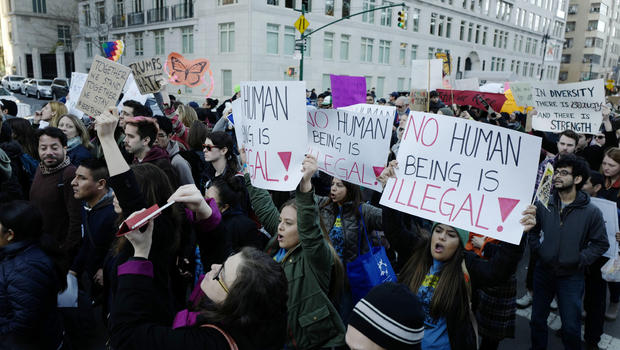The consensus is that 2016 was a pretty bad year. For the 48% of us in the UK that seem to make up that dreaded metropolitan liberal elite we’ve all heard so much about, Brexit was the defining Bad Thing of 2016, only to then be outdone by the US election result. It felt like barely a day went by without a BBC breaking news notification lighting up our phones, its ominous jingle signalling either a development in the increasingly horrific situation in Aleppo or another terrorist attack.
It is rare that a year is so widely acknowledged to have been disastrous. The internet has fed this perception; after a spate of celebrity deaths, terror attacks and Brexit, we all began to visualise a horrible pattern. We all waited for the next piece of shocking news, not knowing where it would come from. It’s not surprising that anxiety levels are through the roof as the future seems increasingly uncertain for many. Although, obviously, personal mental health and economic stability render certain groups of people more vulnerable than others, for various reason, this age of anxiety has come to affect huge numbers of us. And for many, political extremism and its vision of an increasingly dark future is only feeding this.
Apart from the clear impact to people’s wellbeing, anxiety and fear about the political climate also have the potential to immobilise. Relentless waves of bad news feel overwhelming and can make people feel powerless. There can be no worse time for this. Republicans are drafting budgets to have Obamacare defunded, refugees in flimsy tents are facing sub-zero temperatures in areas of Greece and the NHS is being systemically dismantled as people die waiting for cancer surgery. There can be no room for complacency.
Many important social movements start from the grassroots level in the face of institutional opposition. The Civil Rights movement, the Women’s Liberation movement, and workers’ rights movements across space and time have all been instrumental in enacting legislative and societal change. Progress seldom comes simply from the top down – in fact, parliamentary representatives are motivated by and, arguably, need group agitation for change to take place and governments to be held accountable. In the midst of the present political chaos, people need to organise more than ever. Feeling overwhelmed is completely understandable and natural, but we need to remain as on guard and active as possible.
Trump will be inaugurated this week. As painful as that is to many, it is a reality. But there is anger and it is being put to use. The President-elect will be fought every step of the way. This does not just mean national demonstrations, like the Woman’s March, campaigning for midterms and petitioning. Smaller, more local action is equally valuable in looking after the communities Trump’s movement, and the spread of the far right in general, is bent on destroying. This could mean volunteering locally, supporting or fundraising for charities, encouraging young people to become politically engaged and register to vote for local elections and by-elections. It is more important than ever to support independent journalism, to back movements like Black Lives Matter, to donate to Planned Parenthood and, in general, to show solidarity with the people that rise of far right populism is bent on dehumanising.
2016 was a miserable year for many. There is little evidence to suggest that 2017 will be any better; our phones will continue to ominously buzz with news of disaster and death. Without a doubt, we are entering a dark, new political age. But it’s up to us where we position ourselves in it.
Image Credit: Mark Lennihan

